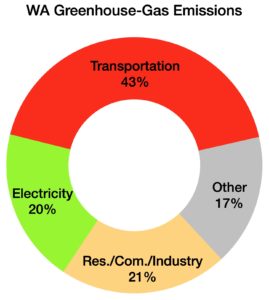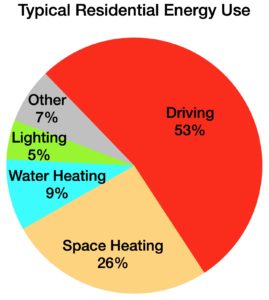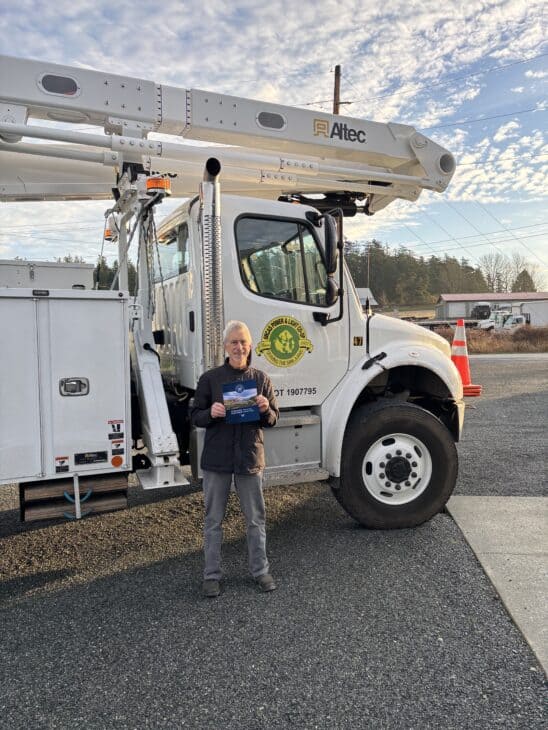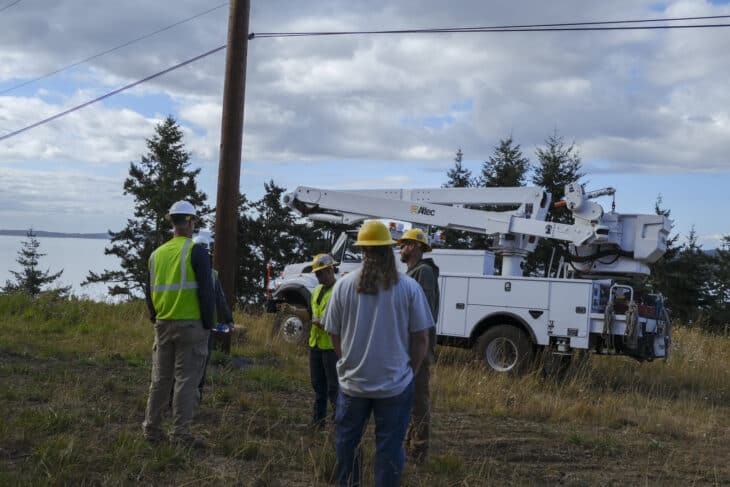Quick Fact – Decarbonization – Part 3
Energy Consumption: This is a four-part series looking at how climate impact is rapidly changing our world and the coming challenges as we make the transition to a future that is climate sustainable.
Transportation and Heating
Washington state is leading the way in decarbonizing the two largest uses of energy in a typical home:
- Fossil-fueled transportation (gasoline, diesel)
- Heating (propane, heating oil, natural gas)
 Transportation is the state’s largest source of greenhouse gas emissions at 42.5%. Advancements in electric vehicle (EV) technology in conjunction with the state’s abundant and inexpensive, low-emission electricity, enables the state to greatly reduce greenhouse gas emissions by dramatically increasing the number of electric vehicles on our roads.
Transportation is the state’s largest source of greenhouse gas emissions at 42.5%. Advancements in electric vehicle (EV) technology in conjunction with the state’s abundant and inexpensive, low-emission electricity, enables the state to greatly reduce greenhouse gas emissions by dramatically increasing the number of electric vehicles on our roads.
- There are currently 43,000 EVs in WA, growing at 71% per year
- Washington’s pending HB 2515, also known as the Clean Cars 2030 bill, requires all new cars sold in Washington to be electric starting in 2030.
- The continued electrification of the state’s transportation system will be vital to meeting the state’s long-term greenhouse gas emission goals.
- About 55% of typical residential energy use is for driving (gasoline).
 Heating is the second largest use of energy in a typical home – about 30%, for heating the home and water heating. Some homes use propane, natural gas, or other fossil fuels to heat.
Heating is the second largest use of energy in a typical home – about 30%, for heating the home and water heating. Some homes use propane, natural gas, or other fossil fuels to heat.
- Converting fossil-fueled driving and heating to clean electric energy is estimated to reduce carbon emissions by 72% by 2050.
- And, while it will reduce consumption of fossil fuels significantly, it is estimated that it will increase electric energy load by 37% by 2030.
Decarbonizing energy consumption will make a major reduction of carbon emissions. The combination of decarbonizing energy generation and consumption will present some significant challenges though, including potential energy shortages in the coming decade.
Learn more:
- Read the full four part Quick Fact series at: www.opalco.com/quick-facts
- OPALCO Integrated Resource Plan



